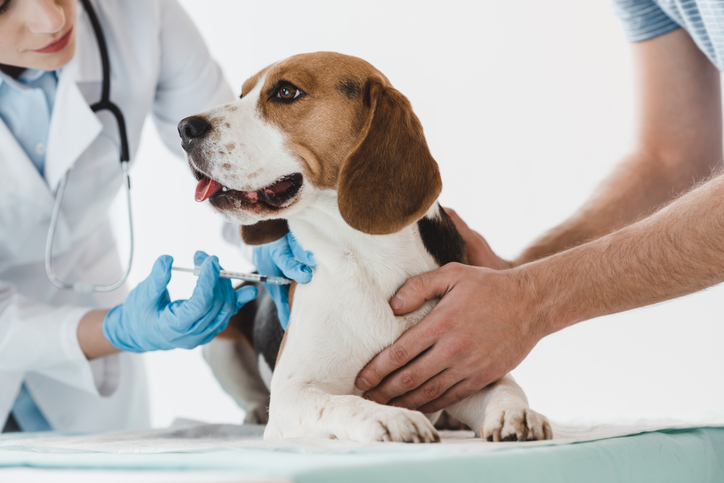Covid-19 has everyone talking about vaccinations for people — what is the right timing or the proper dosage? Pet owners, however, have been asking veterinarians these questions for years. So how do we find the right balance for keeping our four-legged friends safe and at their best?
Dr. Lynda Loudon has been an emergency room veterinarian on Long Island for 20 years and continues to see the effects of over-vaccination for autoimmune diseases, cancer, and other chronic illnesses. “Unfortunately, research is lacking regarding how long our pets are actually provided immunity following vaccination. This leads to over-vaccination, which can lead to deleterious effects on the pet’s immune system. Every pet is different and vaccine protocols should be tailored to the individual. A large-breed, healthy show dog traveling and interacting with many other dogs daily should not receive the same vaccine protocol as a toy-breed dog with chronic disease who is indoors 90% of the time,” says Loudon.
She suggests vaccinating puppies with two rounds of parvo and distemper vaccine at 8 and 12 weeks, as these infections can be life-threatening for your dog. These vaccines are typically included in a 5-in-1 shot which also includes three additional vaccines, which puppies do not need. She recommends a titer (a blood test that checks the level of antibodies to that particular infection) after the second round of parvo and distemper to be sure your puppy is protected. “Every puppy I’ve ever tested after just two rounds has been covered,” says Loudon. She also recommends that the rabies vaccine be given at 6 months of age with a booster 1 year later. Rabies vaccination laws vary by state. Here in New York, after the one-year booster, your dog requires vaccination for rabies every three years. If your dog has had a reaction to a vaccine or has an immune mediated disorder, then the animal should never be vaccinated again. In these cases, your veterinarian can write a letter to the state requesting a waiver. “I believe in science and vaccines, and I also believe we need to vaccinate our pets in a way that makes sense and doesn’t harm them,” she says.
The best course of action for pet owners is to speak with your veterinarian about what vaccines are best for your pet. Do your research and ask questions. Together you’ll help your pet stay safe and healthy!
Sign up for Long Island Press’ email newsletters here. Sign up for home delivery of Long Island Press here. Sign up for discounts by becoming a Long Island Press community partner here.
































